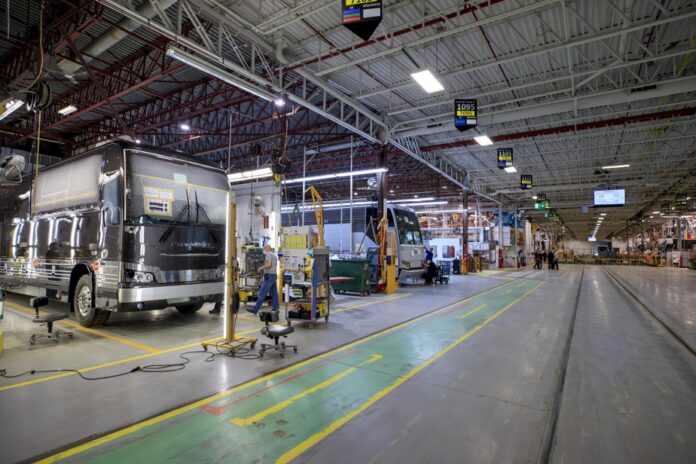In the midst of an electric shift, the coach manufacturer Prevost cannot afford to look too far ahead. The recovery in demand is forcing it to increase its production capacity despite the challenges with its suppliers and the difficulty in finding new employees.
“We’ve waited 15 or 16 months for a coach, we’ve never seen that,” said François Tremblay, who has headed the Volvo Canada group since March 2, in a recent interview with La Presse, then that he was passing through Montreal. “Before, it was around six months. »
This strong increase in the order book comes as the manufacturer lays the groundwork for a new electric platform with the aim of starting to deliver electric coaches from 2024. Mr. Tremblay – president of Prevost before taking the helm of the Volvo’s Canadian branch last month – juggling the challenges of ramping up and designing a new product.
From next month, there should be three vehicles a day leaving the factories of the company, which does not intend to stop there. We want to assemble four coaches daily next year.
“At the Sainte-Claire plant, it was one unit per day in February 2022, illustrates Mr. Tremblay. There are two major issues: labor and supply chains. »
Prevost generates approximately 85% of its sales in the United States. In public transit companies, ridership has not returned to pre-pandemic levels, but demand is still there.
The health restrictions have had a positive impact on private coach companies as well as in the entertainment sector.
“We can add to that the luxury motorhomes at 2-3 million US, says Mr. Tremblay. In the world of music, bands essentially drive our vehicles. There is a big demand with the catch-up. Transport companies also want to maintain a fleet in good condition. After ten years, a vehicle, you have to forget that. Duty cycles are tough. »
Like other players in the electrical sector, Prevost received a financial boost from the Legault government as part of its electrification ambitions last year. The aid totals $23 million in grants and forgivable loans. This will allow the company to follow rivals like Proterra (US), Van Hool (Belgium) and BYD (China), which offer electric coaches.
Although production of the H3-45 model is only scheduled for 2026, Mr. Tremblay says he is “on the eve” of announcing the “first orders”. He did not, however, offer details on the identity of the buyers at this stage.
We are counting on a range of 400 kilometers for the moment. This should make it possible to target four niches: short-distance trips in cities, shuttles for transporting employees, short-distance intercity trips as well as vehicles used for city tours.
“A trip between Montreal and Quebec is perfect,” says Mr. Tremblay. We are talking about a journey of approximately 270 kilometers with an opportunity to recharge at the destination. Anything less than 400 km use, our coach can handle it. »
The electric shift at Prevost should turn to the expertise of Nova Bus, which also belongs to the Volvo group. The electric shift is more advanced at this urban coach manufacturer, which has already delivered its LSFE electric models.















